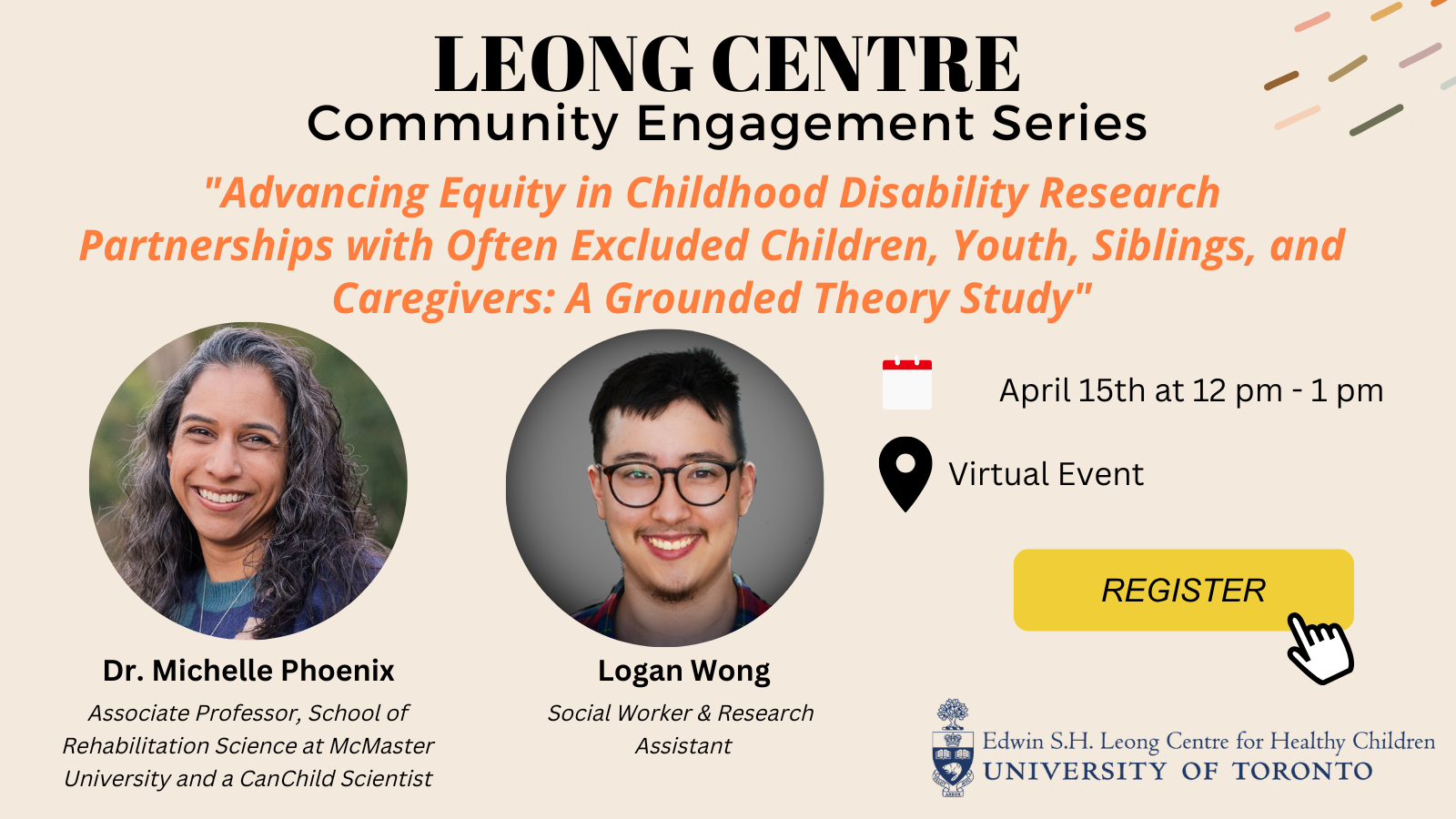Community Engagement Series: Dr. Michelle Phoenix & Logan Wong
DATE: April 15, 2025
TIME: 12:00 – 1:00pm (ET)
METHOD: Virtual
REGISTRATION: https://zoom.us/meeting/register/_9lFJ1VJTo60cJ6tMHgDxA#/registration
SPEAKERS:
Dr. Michelle Phoenix is an Associate Professor in the School of Rehabilitation Science at McMaster University and a CanChild Scientist. She has practiced clinically as a speech-language pathologist and holds an adjunct scientist position with KidsAbility. Her research focuses on improving access and equity in children's rehabilitation services. This includes topics of family-centred care, cultural responsivity and trauma informed care, parent well-being, and innovative models of service delivery. She works with a variety of community partners and studies ways that we can include often excluded populations in service design, delivery, and evaluation.
Logan Wong identifies as a trans, bi-racial, Autistic wheelchair user and is a social worker & equity, anti-racism, anti-oppression, & accessibility professional. He currently works at McMaster University as a research assistant within the School of Rehabilitation Sciences and is an entrepreneur and the owner of IDEAA Perspectives Training & Consulting, a consulting firm specializing in Inclusion, Diversity, Equity, Accessibility and Anti-Racism (IDEAA).
TITLE: Advancing Equity in Childhood Disability Research Partnerships with Often Excluded Children, Youth, Siblings, and Caregivers: A Grounded Theory Study
DESCRIPTION: This presentation will focus on sharing interim findings from a SSHRC funded qualitative grounded theory study about how to engage often excluded populations in childhood disability research. We will draw from interviews with disabled children and other youth, sibling, and caregiver populations that are often excluded as research partners (e.g., people who are fathers, Francophone, rural, Indigenous, parents with disabilities, racialized). We have also interviewed researchers who have included these often-excluded populations as partners in their childhood disability or health research. Our emergent findings will speak to motivations for partnership, reach and recruitment, the principles of engagement, and the positive and negative outcomes that were reported.
OBJECTIVES:
By the end of this event:
- Participants will be invited to critically reflect on who may be often excluded in their research partnerships and how to extend their reach
- Participants will be invited to consider the ways to bring humanism and establish trust in their research partnerships
- Participants will identify the positive and negative impacts that can occur when engaging often excluded populations in childhood disability research

Contact
Knowledge Mobilization and Community Engagement Specialist
Edwin S.H. Leong Centre for Healthy Children
